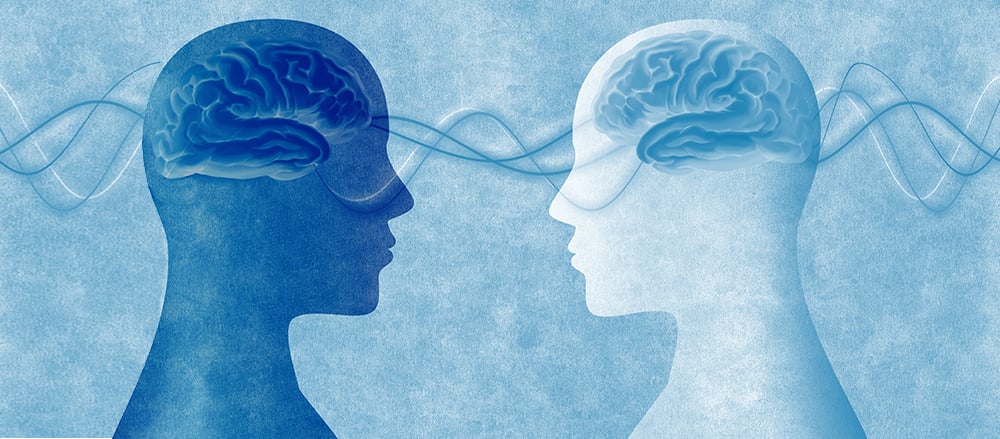Healthcare providers who practice evidence-based therapy utilize knowledge based on research evidence to determine their therapeutic style. Research helps instruct psychological care providers on the most effective treatments, such as the number of sessions or therapy type available as a treatment. For example, behavioral principles in dialectical behavior therapy serve as an evidence-based treatment for those with borderline personality disorder.
The American Psychological Association outlines the purpose of evidence-based practice as promoting "empirically supported principles of psychological assessment, case formulation, therapeutic relationship, and intervention." Evidence-based therapy (EBT) works best when healthcare providers personalize and customize EBT options for their patients based on social, cultural, and environmental factors.
What is Evidence-Based Therapy (EBT)?
Most people with an introductory course or background in psychology learned about the varying types of research. A wide range of literature qualifies as evidence-based research, from a singular case study to more extensive clinical controlled trials.
Evidence-based therapy is popular for its success and cost-effectiveness in treating psychological conditions. According to "Evidence-Based Psychotherapy: Advantages and Challenges" by Cook, Schwartz, and Kaslow, the following research methods produce evidence-based therapies:
- Meta-analyses: A meta-analysis is an analysis combining and evaluating the effect size between variables from a vast body of research. This analysis can include examining thousands of research articles to draw a conclusion.
- Randomized controlled trials (RCT): Clinical trials include a control and experimental group to test out interventions. Well-designed RCTs limit confounding variables and allow intervention-based conclusions to form.
- Effectiveness studies: Effectiveness and efficacy studies demonstrate whether an intervention works and whether it withstands real-world conditions versus the pristine conditions of a laboratory.
- Process studies: Process studies aim to understand therapeutic methods that will bring about mechanisms of change.
- Single-case reports and systematic case studies: Case reports hone in on the treatment plan of a singular individual. These are useful for highly specialized and unique instances.
- Qualitative and ethnographic research: Qualitative research contrasts with quantitative research as the focus lies on data that is more than numerical. This type of research includes self-reported data like interviews and questionnaires. Ethnography focuses on cultural context.
- Clinical observation: Observational techniques do not include a manipulated, experimental intervention. Observational research is effective in providing additional evidence for treatments.
Benefits of Evidence-Based Therapy (EBT)
There are several benefits of evidence-based therapy (EBT), such as:
- Treatments corroborated by multiple healthcare professionals and disciplines
- Research validation on healthcare concerns
- Effectiveness in changing negative cognitive and behavioral patterns
- Precise predictor of therapy diagnosis and treatment plans
There are certain mental health conditions in which multiple fields take an interest in studying. Evidence-based therapy combines all the available literature from general health practitioners to therapists to neuroscientists who aim to understand the same conditions with differing approaches. Evidence-based therapy is a therapeutic approach that combines the work of many healthcare professionals. When multiple fields of study research a topic, the evidence demonstrates efficacy.
Examples of Evidence-Based Therapies
The following therapies are well-validated as treatment options for certain mental health conditions.
- Cognitive Behavioral Therapy (CBT): Cognitive Behavioral Therapy is a popular treatment option for depression and anxiety because of its ability to provide effective results in altering negative cognitive processes. According to the APA, six to twenty weekly sessions typically lead to healthier behavior.
- Dialectical Behavioral Therapy (DBT): Dialectical Behavioral Therapy is a well-known and go-to choice for treatment providers of borderline personality disorder created by Dr. Marsha Linehan. DBT includes four main modules on topics like mindfulness, which take about six weeks to complete. There is a large body of evidence confirming the effectiveness of the treatment.
- Eye Movement Desensitization and Reprocessing (EMDR): Eye Movement Desensitization and Reprocessing is the evidence-backed treatment for trauma disorders like post-traumatic stress disorder. The theory is that individuals with trauma are able to process that trauma better when stimulating their eye movement with a trained healthcare professional. The therapy is typically delivered in six to twelve sessions once or twice a week.
- Medications: Medications are some of the most common evidence-based therapies because of the rigorous testing required to launch them and prescribe them as a treatment option. There are certain health conditions which evidence proves medication is a powerful component of a treatment plan. For example, a psychotic disorder like schizophrenia or a mood disorder like bipolar disorder typically requires a medical prescription to supplement a talk therapy treatment.
To explore more distinctive topics backed by evidence-based interventions, CONCEPT provides training and education for psychological care providers to acquire specialized skills.
- Evidence-Based Treatment of Intimate Partner Abuse by Dr. John Hamel
- Assessment & Management of Suicidal Clients by Dr. Michele Galietta
- Evidence-Based Internet Interventions to Reduce Health Disparities by Dr. Ricardo F. Muñoz
Evidence-Based Therapy (EBT) is also regarded as evidence-based practice in psychology (EBPP). Healthcare professionals rely on vast bodies of research to identify effective treatment plans and therapy options. Evidence-based therapy arises from several sources including experimental trials, case studies, meta-analyses, observational studies, and qualitative studies. Psychologists who practice EBT allow research to guide the fundamentals of their practice.























